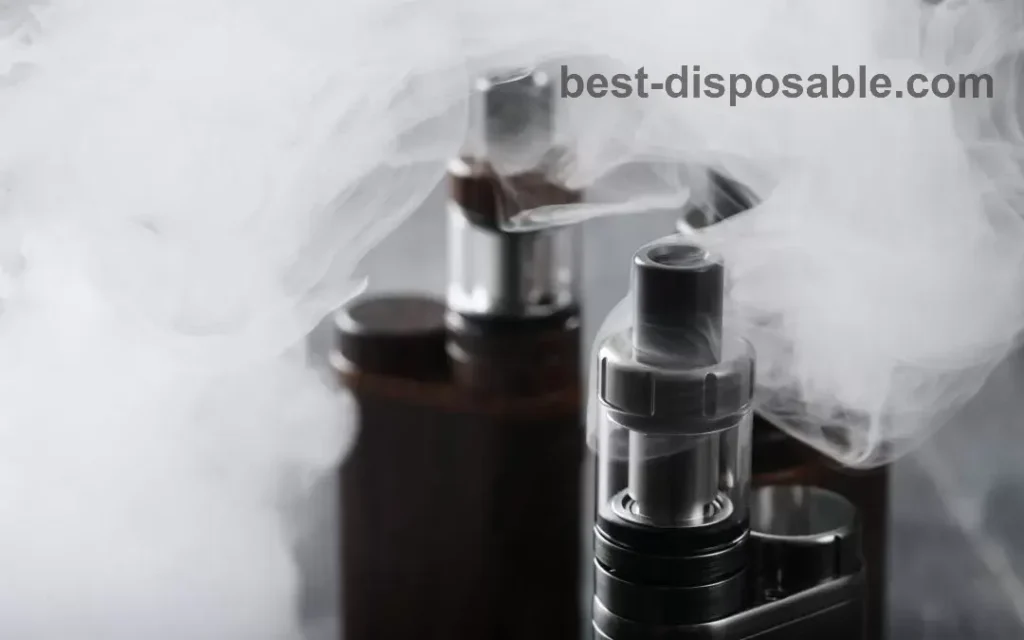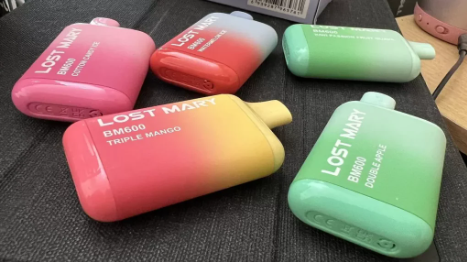Vaping has become a cultural phenomenon, especially among teens and young adults, touted as a safer alternative to traditional smoking. While vaping doesn’t involve the harmful tar and carcinogens found in regular vapes, there’s still a lot of debate about its long-term effects on health. One of the most concerning questions that has arisen recently is whether vaping could contribute to hair loss. Is there a real connection, or is this just another myth? While the science isn’t fully settled, some studies and case reports suggest there might be a potential link. Let’s dive into the details to figure out whether your daily vape habit could be affecting your hairline.
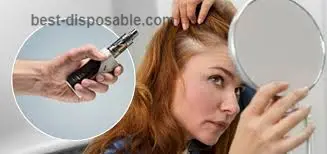
Vaping and Hair Loss: What’s the Connection?
Understanding Vaping and Its Ingredients
Vaping, or using e-cigarettes, works by heating a liquid (called “e-liquid” or “vape juice”) that contains nicotine, propylene glycol, glycerin, and various flavors (yes, flavors!). These liquids are turned into an inhalable vapor, which users breathe in instead of smoke. The key ingredient in most vape juices is nicotine, which is highly addictive and has various effects on the body. Here’s what you need to know about what’s actually in that vape cloud:
Nicotine: The main reason people vape is usually for the nicotine hit. It’s the same substance found in regular cigarettes, and it’s responsible for the addictive nature of vaping. Nicotine comes in various concentrations, usually ranging from 0 to 36 mg/mL, depending on the brand and product.
Propylene Glycol and Glycerin: These substances help create the vapor, and they’re used in food and pharmaceuticals. While they’re generally considered safe in those contexts, inhaling them in large quantities over time isn’t something we fully understand yet.
Flavors: From fruity flavors like mango and watermelon to dessert-inspired options like vanilla and cake, vaping offers a wide range of flavor choices. But some of these flavors contain chemicals that could potentially harm the respiratory system. The safety of inhaling these flavoring agents is still under investigation.

What Causes Hair Loss?
Hair loss, or alopecia, is a multifactorial issue. It doesn’t have a single cause, but here are some of the most common reasons:
Genetics: Male-pattern baldness (and its female counterpart, female-pattern baldness) is often genetic, meaning your family history plays a big role.
Hormones: Hormonal imbalances, such as those seen in conditions like polycystic ovary syndrome (PCOS), can trigger hair thinning. Likewise, testosterone and DHT (dihydrotestosterone) are notorious for contributing to male pattern baldness.
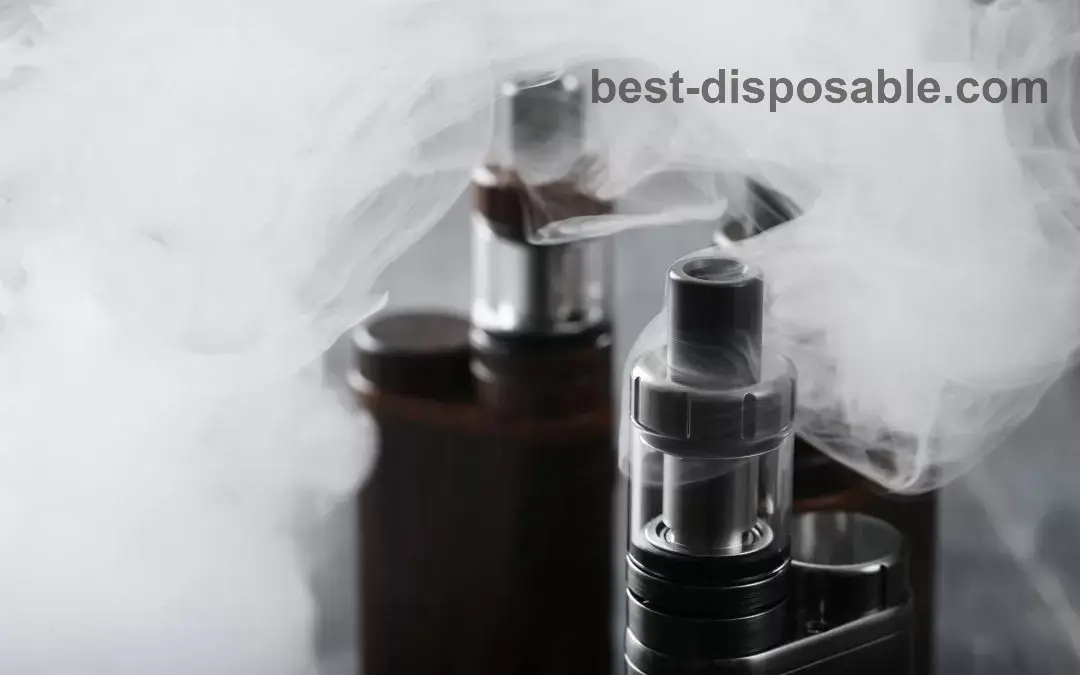
Stress: Chronic stress can push hair follicles into a resting phase, which leads to shedding (known as telogen effluvium).
Diet and Lifestyle: Poor nutrition, lack of sleep, smoking, and excessive alcohol consumption can all affect hair health.
Other Health Issues: Certain medical conditions, like thyroid disorders or iron-deficiency anemia, are known to cause hair loss.
While these factors play significant roles in hair loss, there are some emerging concerns about how vaping might fit into the equation.
Could Vaping Affect Your Scalp Health?
One of the main concerns with vaping and hair loss centers on the nicotine found in e-cigarettes. While nicotine itself doesn’t directly cause hair loss, it can have indirect effects on the scalp, which could eventually lead to thinning hair.
Nicotine and Blood Circulation: Nicotine is a vasoconstrictor, meaning it causes blood vessels to tighten, reducing blood flow. In the context of your scalp, reduced blood flow means less oxygen and fewer nutrients reach the hair follicles, which are essential for healthy hair growth. Over time, this can weaken the hair follicles, potentially leading to shedding.
Chemical Compounds in Vape Smoke: While vaping is marketed as a cleaner alternative to smoking, it’s important to note that e-cigarette vapor still contains harmful chemicals like formaldehyde, acrolein, and acetaldehyde. These substances can irritate the skin and cause inflammation, which could affect your scalp health. Chronic exposure to these irritants could potentially lead to scalp issues that interfere with hair growth.
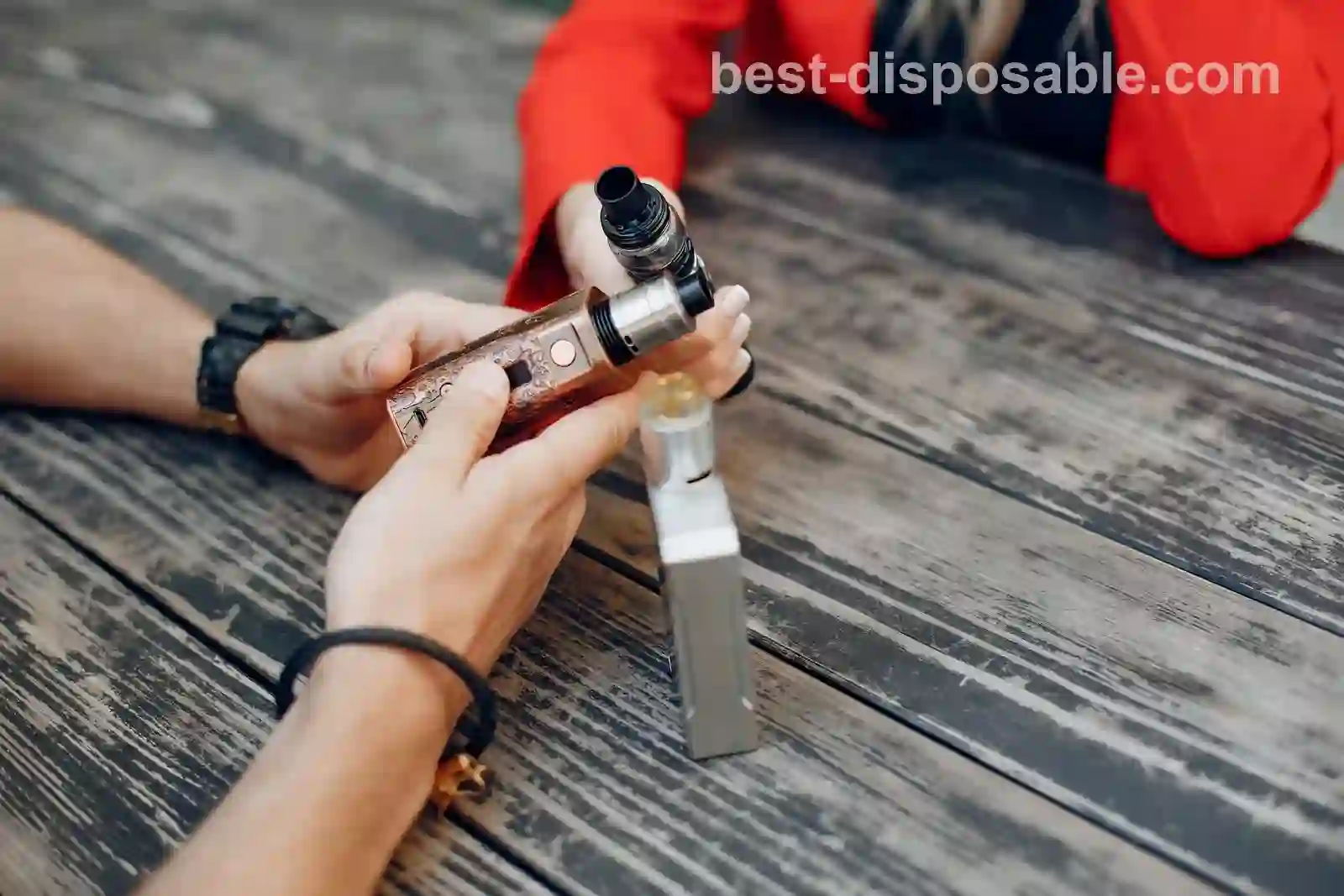
Flavors and Their Effects: While the flavors in vape juice make it more enjoyable, some flavoring agents have been found to cause skin irritation when inhaled. If your scalp is exposed to these chemicals—via vapor inhalation—they might irritate your skin, leading to inflammation and hair loss. Flavored e-liquids are a relatively new trend, and scientists are still exploring their long-term effects on the body.
The Science So Far: Research and Case Studies
Although the connection between vaping and hair loss isn’t fully understood, there have been a few studies and case reports that hint at a link between nicotine use and hair thinning.
Studies on Nicotine and Hair Loss: Research shows that nicotine can interfere with the normal hair growth cycle. Specifically, nicotine can shorten the anagen phase (the active phase of hair growth), leading to more hair in the telogen phase (the resting phase). This might result in increased hair shedding.
Case Reports: There have been individual case reports suggesting a connection between long-term vaping and hair loss. For example, one study on young adults who vape regularly found a correlation between nicotine use and thinning hair. However, it’s important to note that correlation doesn’t equal causation, so these reports are far from definitive.
Despite these findings, more research is needed to determine whether there’s a direct cause-and-effect relationship between vaping and hair loss. The current evidence doesn’t firmly establish vaping as a major cause of hair loss, but it does suggest that it could potentially contribute to scalp issues, especially if you’re already predisposed to hair thinning or other scalp conditions.
What Can You Do to Prevent Hair Loss?
If you’re concerned about the potential effects of vaping on your hair, there are several strategies you can adopt to help promote healthy hair growth and ensure your scalp stays in top shape. Hair loss is often a multifactorial issue, so addressing multiple aspects of your lifestyle can improve not just your hair health but also your overall well-being. Here’s how you can help prevent hair loss:
1. Stop or Reduce Vaping
The most effective way to prevent any potential harm caused by vaping is to reduce or quit altogether. Nicotine and other chemicals in vape juice could be contributing to your hair loss by affecting blood circulation to your scalp. If you notice hair thinning and suspect vaping might be a factor, cutting down on nicotine or even switching to nicotine-free vape juice might help. By reducing the constriction of blood vessels that nicotine causes, you can improve blood flow to your scalp, allowing your hair follicles to receive more nutrients, which is essential for healthy hair growth. While quitting vaping might seem difficult, consider it as a step toward better health, not only for your hair but for your overall cardiovascular and respiratory systems as well.
2. Improve Your Diet
Your hair is a reflection of your overall health, and one of the most important things you can do for healthy hair growth is to nourish your body from the inside. Make sure you’re getting enough vitamins and minerals that support hair health. Protein is a key building block of hair, and eating foods like eggs, lean meats, legumes, and nuts can help your body produce strong hair strands. Biotin, zinc, and vitamins such as A, E, and B-complex (especially B7 and B12) are crucial for maintaining the growth cycle of your hair. For example, biotin is known to strengthen hair and prevent breakage, while vitamin E improves scalp health and boosts circulation. Foods rich in omega-3 fatty acids—like salmon, flaxseeds, and walnuts—can also help nourish hair follicles and reduce inflammation in the scalp. A balanced, nutrient-dense diet not only improves hair health but also strengthens your immune system, which can help prevent other factors that contribute to hair loss, such as stress or illness.
3. Manage Stress
Stress is one of the most significant factors contributing to hair loss. It can trigger telogen effluvium, a condition where hair prematurely enters the shedding phase. Learning to manage stress is crucial for both your mental well-being and your hair. There are several techniques you can practice to reduce stress. Meditation and deep breathing exercises can help calm your mind and lower cortisol levels. Yoga is another great option for relieving stress while promoting blood flow to your scalp. Even simple activities like going for a walk, reading, or listening to music can help lower stress levels and prevent hair from falling out prematurely. Regular exercise not only helps with stress but also promotes circulation, which can help nourish your hair follicles and support healthy hair growth. Getting enough sleep is just as important because your body does a lot of its healing and regeneration at night, including the repair of hair follicles.
4. Use Hair Products for Scalp Health
The right hair care products can go a long way in improving the health of your scalp and promoting hair growth. Shampoos and conditioners containing ingredients like biotin, ginger, or peppermint oil can help stimulate blood circulation to your scalp, encourage hair growth, and prevent scalp issues like dryness or dandruff. Peppermint oil, in particular, is known to improve circulation and may promote a more favorable environment for hair follicles. Ginger contains antioxidants that help improve circulation, while biotin strengthens the hair shaft, preventing breakage. Choose products that are free from harsh chemicals such as sulfates and parabens, which can irritate the scalp and exacerbate hair loss. Regular scalp massages with natural oils, like castor oil or coconut oil, can also help improve circulation and moisturize the scalp, promoting healthier hair.
5. Consult a Dermatologist
If you’re concerned about hair loss or changes in your scalp health, consulting with a dermatologist or healthcare provider is a smart move. A professional can help determine the cause of your hair loss and recommend personalized treatment options. For example, they may suggest the use of minoxidil (Rogaine), a topical solution known to stimulate hair regrowth and increase hair density in areas where thinning has occurred. In some cases, a dermatologist may recommend treatments like platelet-rich plasma (PRP) therapy or prescription medications that can help with hair restoration. If your hair loss is related to a hormonal imbalance, nutritional deficiencies, or underlying health conditions, your healthcare provider will be able to provide a comprehensive treatment plan that addresses those root causes. Consulting a professional early can prevent the issue from getting worse and allow for more effective treatments.
Conclusion: Should You Be Worried?
While there’s no solid, irrefutable proof that vaping directly causes hair loss, there are enough red flags to suggest that it could be a contributing factor, particularly through its impact on blood circulation and scalp health. If you’re a vaper and noticing thinning hair, it might be worth reconsidering your vaping habits and exploring other ways to support your hair health.
In the end, it all comes down to balance—if you’re using vaping as a means to quit smoking, the immediate benefits could outweigh the potential long-term risks. But, if you’re vaping for the flavors or out of habit, it might be time to think about the impact on your hair and overall health. As with all lifestyle choices, moderation and awareness are key. And remember, when it comes to hair, taking care of your scalp is just as important as what you put into your body.If you are looking for a healthier vape, you can click on our store, we offer a wealth of geek bar flavors and lost mary flavors.
